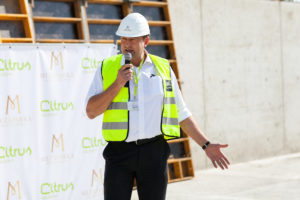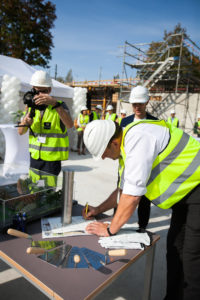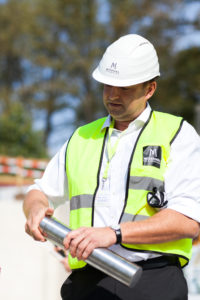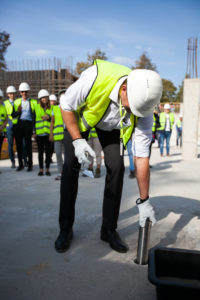‘Future Cities’ is the Theme for 12th Annual Urban Photography Competition
London | 22 November 2018
CBRE has launched its 2019 global Urban Photographer of the Year competition with the theme, “Future Cities.” Now in its 12th year, the competition continues to grow, with last year’s contest attracting more than 80,000 entries from 170 countries around the world.
This year’s theme invites photographers to submit photos that capture their vision of a future city.
The competition is free to enter and open to both professional and amateur photographers. A unique element to the competition allows each entrant to submit up to 24 images; one to represent each hour of the day. The overall global winner will be awarded a special photography trip to a destination of their choice for themselves and a friend. Other prizes include GoPro packages, photographic equipment and more. CBRE is accepting entries until January 31, 2019 and the winners will be announced in May 2019.
Martin Samworth, Group President and Chief Executive Officer, Europe, Middle East, and Africa (EMEA) at CBRE and the competition’s executive sponsor commented: “This competition always provides inspiring insights into how we interact with our ever-changing urban environments and this year’s theme will encourage photographers to interpret how they perceive our cities of the future.”
Leslie Gall, CBRE’s Senior Vice President of Marketing, says, “We are a company deeply connected with the urban environment, and the Urban Photographer of the Year competition allows us to demonstrate our knowledge and passion for city life. As evidenced by the record number of entries we received last year, this unique competition continues to capture the interest and imagination of photographers around the world.”
Richard Morgan, an award-winning British street photographer living in Poland, was named as the overall global 2018 competition winner with his image, “What are you looking at?” – a compelling image connecting local and tourist spectators and the city in Poznan, Poland.
About the CBRE Urban Photographer of the Year competition
Website: www.cbreupoty.com
Facebook: CBRE Urban Photographer of the Year
Twitter: @UPOTY
Instagram: https://www.instagram.com/cbre/
Key terms – for full Terms and Conditions, please visit the website
Copyright/Usage: By submitting a Photo, entrant grants Sponsor and its agents, affiliates and subsidiaries a perpetual, unlimited worldwide royalty free license (including the right to sub license), for the maximum legal term of the Photo’s copyright protection, with full title guarantee and right to post, publish, and otherwise make use of, entrant’s first name, last initial, address (city/state/country), likeness or picture, biographical information, Photo description(s) and any Photo submitted in publication and/or on the internet, for advertising and/ or promotional use in any media in connection with and/or related to the Contest or a similar competition run by the Sponsor or any of its group companies without notice or compensation of any kind.Entrant agrees that all applicable taxes, fees and other levies on any prize are solely the winner’s responsibility.Copyright in all Photos remains the property of the entrant at all times; however, in addition to the above licence, entrants agree to the maximum extent permitted by law, to waive all or not to assert any of their moral rights in the photos (or equivalent rights anywhere in the world) as against the Sponsor and its agents, affiliates and subsidiaries in particular but without limitation the right to be referenced as the photographer or owner of the image or to modify in any way the submitted Photos to the extent permitted by law.






































